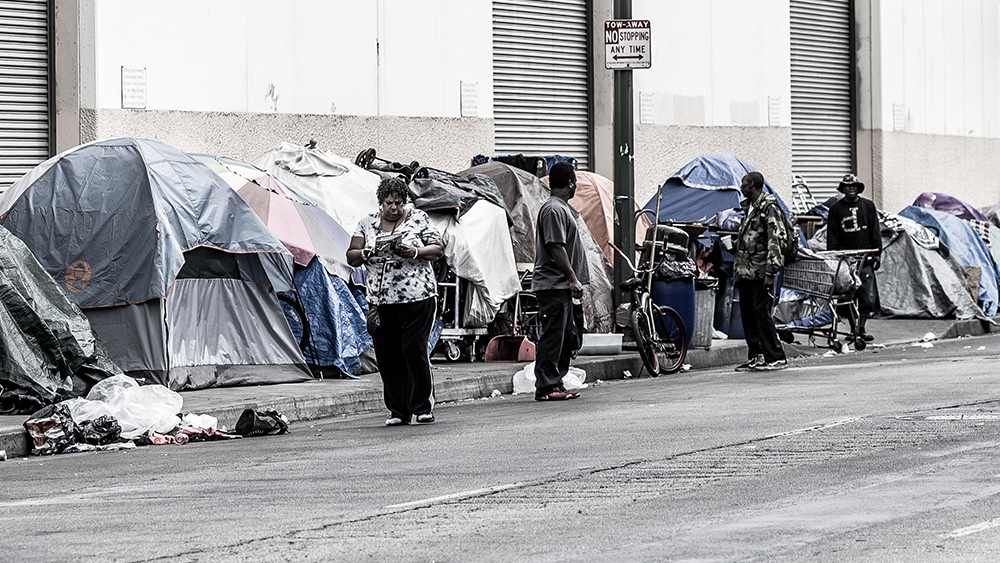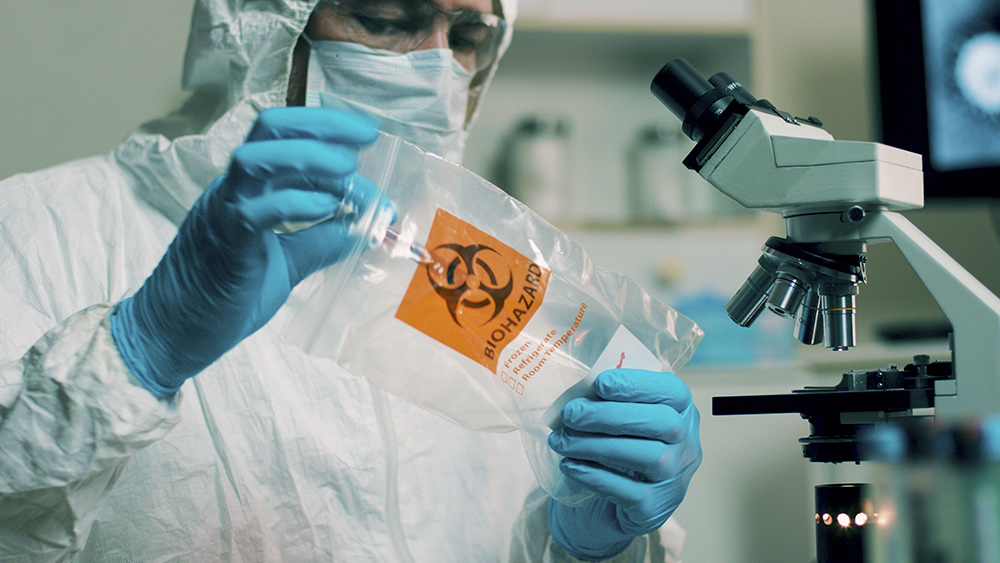
More than 200 homeless people have been evicted from a former hotel in southern Minneapolis. The owner told volunteers who helped organize the shelter on Monday night that the the building's residents had to leave by Tuesday morning because of a report of a drug overdose.
The former Sheraton Minneapolis Midtown Hotel, located approximately one mile from where George Floyd died, has been functioning as a shelter for over 200 homeless people since the beginning of the engineered riots on May 29.
Residents at the Sheraton were awoken at 6 a.m. when the fire alarm went off and the owner of the hotel, Jay Patel, ordered their immediate eviction from the building. The scenes at the hotel afterward were described as chaotic.
Homeless people, some with children in tow, began pouring out of the hotel lobby. Many former residents sat on curbs outside of the hotel because they had nowhere else to go. One angry former resident darted around the parking lot screaming at people leaving.
In a press conference held outside the hotel on the morning of the eviction, residents and volunteers decried the inhumanity of the eviction and demanded that they be given permanent housing. Some of the residents stated that they wouldn't leave, and some volunteers said they would continue negotiating with Patel.
“I don't know if the owner has the power to evict us,” said Rosemary Fister, one of the organizers of the new shelter.
In addition to the homeless, some people who live near the former Sheraton moved in to seek sanctuary as the riots escalated. The hotel, unfortunately, lies on a stretch of Minneapolis that was badly damaged during the violent demonstrations.
The organizers of the shelter handed out tents and sleeping bags to the people who left. Those who stayed met with elected city officials to ask them for government funding to keep the operation running.
Listen to this episode of the Health Ranger Report, a podcast by Mike Adams, the Health Ranger, as he talks about how people need to be careful because the Wuhan coronavirus (COVID-19) pandemic isn't over yet, and people still need to be careful of future infections.
Sheraton Midtown has functioned as an emergency shelter since the beginning of the riots
When the civil unrest began, volunteers approached Patel and asked for his permission to turn the former hotel into an emergency shelter. Patel bought the hotel earlier this year and, according to the Minneapolis/St. Paul Business Journal, was in the process of rebranding it. (Related: Minneapolis businessman UPROOTING his company, costing city over 50 jobs.)
With Patel's permission, the volunteers turned the 136-room hotel into a shelter. They began shepherding people they found sleeping in tents in the Midtown, Greenway area into the hotel's empty rooms.
In less than 48 hours, the former hotel was quickly transformed into a homeless cooperative. Volunteers and residents alike signed up on several massive online forms to take on many of the building's essential tasks, such as delivering food, cleaning up rooms and providing security. The shelter organizers were even able to raise over $100,000 on GoFundMe and rake in thousands of individual donations for food, toiletries and other necessities.
By Sunday, all the rooms in the four-story hotel had been filled, but people still kept coming in, which is why other areas of the hotel were quickly converted into sleeping quarters. As of Tuesday, the day of the eviction, the shelter had a waiting list of around 450 people.
However, unlike traditional homeless shelters, the Sheraton had one glaring problem that the organizers chose to overlook: People who stayed were allowed to bring both drugs and alcohol into the building. The shelter's volunteer medics were tasked with preventing overdoses and helping users get access to emergency health services rather than with kicking out the few bad apples.
This rule, however, started becoming a problem in the days leading up to the overdose and Patel's decision to evict the residents. Volunteers quickly became overwhelmed as both residents and non-residents began using drugs in the hallways.
According to Jennie Taylor, one of the residents, the word spread around the community that the Sheraton was a place where people could use drugs freely This, she says, helped the shelter attract the wrong crowd.
Moon Beaumaster, another resident who volunteered to help run the shelter, agreed with Taylor, stating that some “parasitic drug dealers” began abusing the hotel's rules by using the shelter as a place where they can easily sell their wares.
“It only took one person for all of us to lose something that was a good thing,” said Dani, another resident, about the person who overdosed in the shelter.
“It's unfortunately that a few people appear to have ruined it for everyone,” said Taylor. “There are some of us who do have hope for sobriety and housing.”
She said that, if she does have to leave, she will most likely pitch a tent near the hotel. Because of the coronavirus pandemic, she's afraid of entering any one of the other homeless shelters nearby.
Riots have turned Minneapolis and other cities across the United States into war zones. Stay updated on what's happening with the civil unrest in the country by reading the articles at Rioting.news.
Sources include:
Please contact us for more information.





















